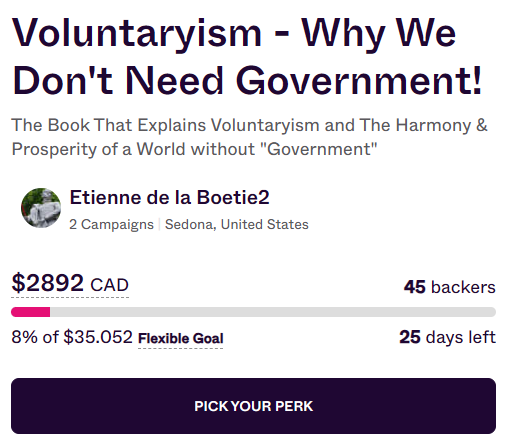Huge study reveals striking decline in the desire to stand out and be unique
A recent study published in Collabra: Psychology has found a notable decline in people’s motivation to stand out or be unique over the past two decades
A recent study published in Collabra: Psychology has found a notable decline in people’s motivation to stand out or be unique over the past two decades. Researchers analyzed data from over one million people between 2000 and 2020, measuring various aspects of uniqueness, including willingness to defend beliefs, adherence to rules, and concern over others’ reactions. Results revealed declines across all three areas.
The new study was motivated by evidence suggesting that people are increasingly concerned about the social consequences of expressing opinions, particularly in online spaces where scrutiny is often harsh and widespread. Polling data and past research suggested that fear of isolation or criticism might make people more cautious about sharing beliefs or acting in ways that draw attention.
At the same time, rising social anxiety and sensitivity to judgment could make people more hesitant to express uniqueness in ways perceived as confrontational or outside social norms. Given these shifts, the researchers wanted to track whether and how people’s desire for uniqueness had changed over a 20-year period.
“People have varied perceptions of and opinions about social media. However, one thing everyone seemed to agree on is that you need to be incredibly careful about what you’re posting; it might be best to keep quiet and not stick out too much,” explained study author Bill Chopik, an associate professor of psychology at Michigan State University.
“There’s also a lot of public polling where people are afraid of expressing opinions that are too controversial. In some polls, over 70% of people say they self-censor online. They also think that this fear is damaging public discourse and harming our ability to exchange ideas freely. Part of these observations speaks to people’s ability to be unique and authentically express themselves.”
“We sensed that people thought this was a relatively recent phenomenon. But we thought it’d be good to formally test if people are concerned about these things (i.e., standing out/being unique) and if it is a relatively recent concern or something that’s always existed.”
For their study, the researchers conducted a large-scale analysis of survey data from over 1.3 million participants who completed the need-for-uniqueness questionnaire as part of the Gosling-Potter Personality Project between 2000 and 2020. This survey, conducted annually, gathered data from thousands to hundreds of thousands of respondents each year, predominantly from the United States, providing a robust dataset for identifying trends over time. The survey measured three distinct facets of uniqueness: lack of concern about others’ opinions, willingness to break rules, and tendency to defend personal beliefs publicly.
The need-for-uniqueness questionnaire consisted of 32 statements, each designed to assess participants’ comfort and motivation in standing out. Respondents rated each statement on a scale from one to five, allowing researchers to calculate average scores for each of the three facets.
For example, a participant might rate statements like “I tend to express my opinions publicly, regardless of what others say” or “It is better to agree with others than to be considered disagreeable” to reflect their stance on defending beliefs and concern over others’ reactions. Each facet’s scores were then analyzed year by year, enabling the researchers to identify any significant changes over the 20-year period.
The data showed notable decreases in all three facets from 2000 to 2020, suggesting a shift towards greater conformity and self-censorship in social spaces.
The largest decline, at 6.52%, was in people’s willingness to publicly defend their beliefs, signaling a significant change in how comfortable individuals feel about expressing their opinions. In 2000, survey responses indicated that people were generally more willing to stand by their viewpoints, even if controversial or different from popular opinion. By 2020, however, people were far less likely to express strong beliefs publicly.
This trend could indicate an increase in self-censorship, with individuals potentially fearing backlash, isolation, or criticism if their views differ from those of their peers or social circles. The researchers noted that this decline could be tied to the growth of social media platforms, where opinions are widely broadcasted and scrutinized, making individuals more cautious about sharing viewpoints that might be controversial.
“One thing we were a bit surprised by was how long ago some of these changes started,” Chopik told PsyPost. “We saw that some of the effects (e.g., not defending beliefs publicly) began as early as 2001, before much social media. So, it confirms some thinking about online spaces, but it’s otherwise a bit of a mystery why people are reticent to stand out.”
A related dimension, concern over how others perceive them, saw a 4.28% increase, meaning individuals increasingly reported caring about others’ opinions. This change suggests that people have become more attuned to potential social consequences of their actions and opinions, driving them to prioritize fitting in over expressing unique or divergent perspectives.
In other words, the study suggests that people today are more concerned with maintaining social harmony and acceptance, potentially at the expense of personal authenticity. This heightened concern may reflect broader social anxieties and an increased sensitivity to others’ judgments, which are especially apparent in online spaces where feedback is instant and highly visible.
The study also found a decline, albeit less steep, in people’s willingness to break rules, indicating that people are less inclined to challenge norms or social expectations than two decades ago. This dimension captures a desire to stand out by defying conventions, sometimes a way of asserting individuality. However, responses suggest that, over time, people have become more reserved in behavior, choosing to conform to social norms rather than push boundaries. While the decline here was less dramatic than in other dimensions, it still reflects a shift towards greater caution and adherence to social rules, potentially motivated by a desire to avoid negative social repercussions.
“People’s need for uniqueness is at a 20-year low,” Chopik said. “This effect was primarily driven by people’s apprehension about sharing and defending their beliefs publicly. Although they were also declining, the desire to follow the rules and worry about others’ opinions didn’t decline as much as reluctance to share and defend beliefs publicly. We think the integration of social media into people’s lives—and its punitive consequences—may be one of the causes, but we were limited in our ability to test that.”
As with all research, there are limitations. The survey covers only a 20-year span, limiting insights into longer historical trends. Future research could address these gaps by including a broader participant range and extending the timeline to explore broader societal shifts.
“We couldn’t examine too many mechanisms behind why the need for uniqueness was declining,” Chopik noted. “Also, the effects were small depending on perspective. Psychological traits change slowly at the population level (our study is consistent with this). But the effects are small in the absolute sense—it’s more of a ‘slow creep’ than anything dramatic.”
Looking forward, the researchers aim to investigate why people’s desire for uniqueness has declined. This research opens the door for further exploration into how social and digital changes impact personal expression and belonging.
“Overall, we’re curious about how societies—and the people in them—change over time,” Chopik said. “Even though we saw a change at the population level, plenty of individuals don’t change and aren’t worried about these issues (others are even more terrified). But why? That’s a major part of our lab’s future. Plus, the sample was mostly from the United States, so we’re curious if other countries (with different norms about standing out) might show something similar. But we’ll need to conduct formal studies!”
The study, “Changes in Need for Uniqueness From 2000 Until 2020,” was authored by William Chopik, Kim Götschi, Alejandro Carrillo, Rebekka Weidmann, and Jeff Potter.
Our IndieGoGo for my new book: Voluntaryism - How the Only “ISM” Fair for Everyone Leads to Harmony, Prosperity and Good Karma for All! has raised $1841 from 39 backers or 7% of our $25,000 goal in less than a week with 29 days left! You can get some great perks for pre-ordering at https://www.indiegogo.com/projects/voluntaryism-why-we-don-t-need-governmen








Scary stuff.
It seems to me that the problem isn't so much a rise in online activity, but that it is replacing collapsing real world communities.
Many of us now "belong" to online groups where conformity to a set of (often arbitrary and shifting) ideals is the prerequisite for membership.
This replaces natural social groups which automatically accept each other except in the case of gross violations of well understood moral standards.